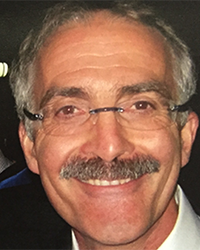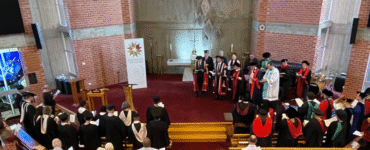These days are some of the most challenging and frightening we have encountered in the last fifty years. So many things we take for granted have been stripped away leaving us with a sense of loss, grief, dislocation, and vulnerability. Our technology normally gives us a sense of power and control but this has been taken away by the spread of COVID-19, a microscopic parasite thousands of times smaller than a grain of salt. It has no respect for borders, nationality, gender or religion. Such a small organism with such a terrible impact. None of us would have imagined that it would bring our patterns of ministry, outreach, and public worship to a halt in the ways it has – no public gatherings, self-isolation, being locked out from visiting loved ones in nursing homes – the list goes painfully on and on for us all. A simple organism that has been described as being on the boundaries of what we call life is challenging life as we know it.
On the verge of entering into Holy Week my thoughts turned to another single-celled organism we call yeast. In ancient Israel, yeast was removed from households for the week of Passover and the Feast of Unleavened bread (Exod 12:17). As precious as it was removed as a reminder of the Exodus journey from slavery to freedom.
One of the images Jesus used to describing the growth of the reign of God was that of the yeast in Matthew 13:33. This parable stressed how yeast, like a virus, works in hidden ways, and yet it can have an enormous impact. It order for it to do its job effectively it must be worked thoroughly into the dough and be left to do its work of leavening. Early Christianity could not operate in public, judged by many to be a destructive and corrupting influence on society.
Fear, grief, panic, and selfishness are being quietly matched by compassion, kindness, and generosity as people of faith work the leaven of Jesus’ message into this moment. Hope does spring eternal. New connections, and new ways of serving and worshipping, are emerging day by day. There was no synagogue or Temple for that first Passover – it has always been a feast to be celebrated in the context of family. This year our Holy Week will be the same.

Reverend Dr Chris Monaghan is a Passionist who studied at Yarra Theological Union and then at the Pontifical Biblical Institute in Rome and Jerusalem. Since 1987 he has been lecturing at YTU in both Old and New Testament. The major focus of his teaching throughout these years has been Matthew, Luke-Acts and the letters of Paul.
During this period Chris has been engaged in adult education programs through schools, parishes and ministry to priests. Making the Bible in its richness accessible to people at all levels is an enduring passion.






Add comment